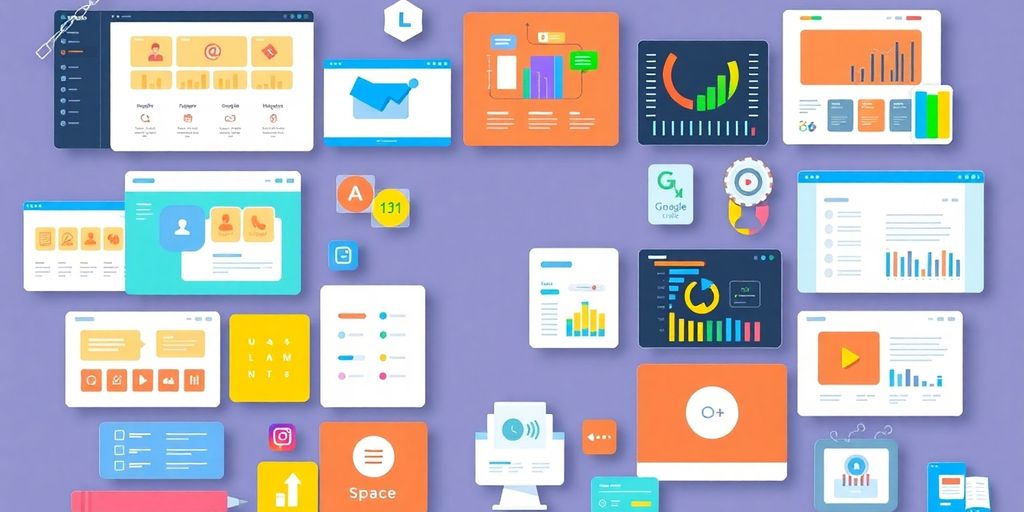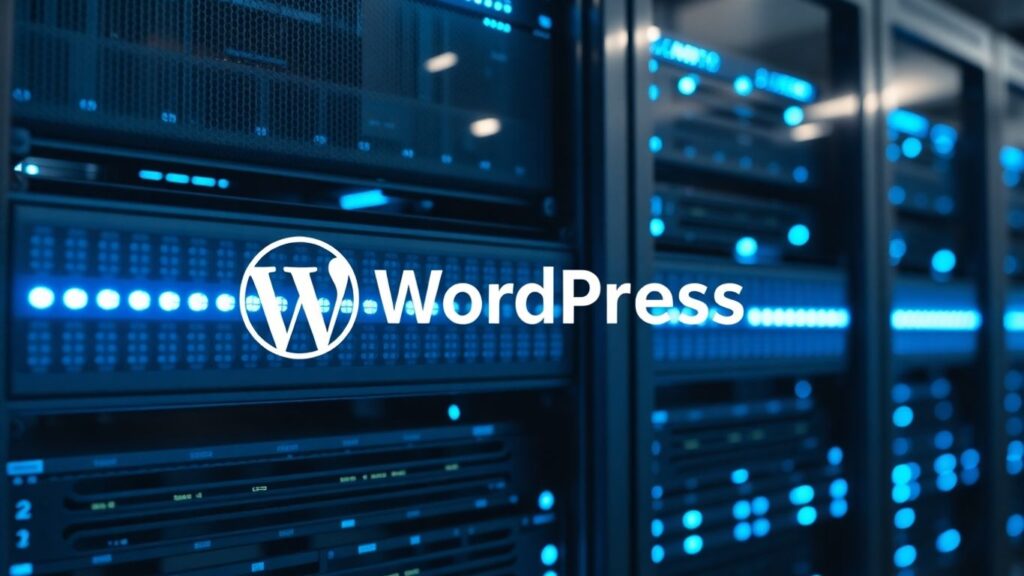WordPress Alternatives: Website Builders for Beginners
If you’re new to building websites, you might find WordPress a bit overwhelming. Thankfully, there are plenty of other options out there that are simpler and just as effective. This article will explore some great alternatives to WordPress, focusing on website builders that are perfect for beginners. Whether you want a site for a personal blog, a portfolio, or an online store, we’ll help you find the right tool to get started without the headaches.
Key Takeaways
- Website builders like Wix and Squarespace are user-friendly and ideal for beginners.
- Look for platforms that offer lots of templates and customization options.
- Consider your budget, as some builders offer free plans while others charge a monthly fee.
- Ecommerce features are important if you’re looking to sell products online; Shopify is a great choice.
- Support resources like tutorials and customer service can make a big difference for first-time builders.
Exploring User-Friendly Website Builders
So, you’re thinking about building a website but the thought of dealing with code makes you sweat? You’re not alone! Luckily, there are tons of website builders out there designed with beginners in mind. These platforms aim to make the whole process as painless as possible. Let’s take a look at what makes a website builder truly user-friendly.
Understanding User Experience
User experience (UX) is everything when it comes to website builders. A good UX means you can easily find what you need, understand how things work, and complete tasks without pulling your hair out. Think about it like this: if a website builder feels clunky or confusing, you’re less likely to stick with it. A smooth, intuitive interface is key. It’s all about how the builder feels to use.
Key Features for Beginners
When you’re just starting out, certain features can make a huge difference. Here are a few to keep an eye out for:
- Drag-and-drop functionality: This lets you move elements around on your page without writing any code.
- Template libraries: Pre-designed templates give you a starting point and help you create a professional-looking site quickly.
- Simple content management: Adding and editing text, images, and other media should be straightforward.
- Integrated help and support: Easy access to tutorials, FAQs, and customer support can be a lifesaver.
Website builders should feel like a helpful guide, not a complicated puzzle. Look for features that simplify the process and empower you to create a website you’re proud of.
Comparing Ease of Use
Not all website builders are created equal. Some are definitely easier to use than others. It’s worth taking the time to compare different platforms and see which one clicks with you. Consider things like:
- The learning curve: How long does it take to get the hang of the basics?
- The complexity of the interface: Is it clean and organized, or cluttered and confusing?
- The availability of support resources: Can you easily find answers to your questions?
Ultimately, the best way to determine ease of use is to try out a few different builders yourself. Most offer free trials or basic plans, so you can get a feel for the platform before committing to a paid subscription.
Top Picks for Beginners

Choosing a website builder when you’re just starting can feel overwhelming. There are so many options, each promising to be the easiest and best. I’ve been there, and I get it. So, I’ve narrowed down a few top picks that consistently get good reviews from beginners and offer a balance of features, ease of use, and affordability. Let’s jump in!
Wix: Best for Design Flexibility
Wix is often praised for its drag-and-drop interface, which gives you a ton of control over your website’s layout. It’s like having a blank canvas where you can put anything, anywhere. This is great if you have a specific vision in mind, but it can also be a little overwhelming if you’re not sure where to start. Wix offers a huge library of templates to help you get going, and they cover just about every industry you can imagine. The app market is also a big plus, letting you add extra features like booking systems or advanced contact forms. However, keep in mind that once you pick a template, you’re pretty much locked in – you can’t easily switch to a different one later. If you want to easily add products, Wix is a great option.
Squarespace: Easiest for Creative Sites
Squarespace is known for its sleek, professional-looking templates. It’s a great choice if you want a website that looks polished and modern without a ton of effort. The editor is very intuitive, and the platform guides you through the process of setting up your site. While it might not have the same level of drag-and-drop freedom as Wix, Squarespace makes up for it with its ease of use and focus on design. It’s particularly well-suited for creative professionals like photographers, artists, and designers who want to showcase their work in a visually appealing way. Squarespace is the easiest website builder for beginners.
Hostinger: Affordable and Simple
If you’re on a tight budget, Hostinger is definitely worth considering. It’s one of the most affordable website builders out there, and it’s surprisingly easy to use. Hostinger offers a simple drag-and-drop interface and a decent selection of templates. It might not have all the bells and whistles of Wix or Squarespace, but it’s a solid choice for basic websites like blogs, portfolios, or small business sites. Plus, Hostinger’s customer support is generally very responsive, which is a big help when you’re just starting out. Hostinger is another safe bet for beginners.
Choosing the right website builder depends on your specific needs and priorities. Consider what’s most important to you – design flexibility, ease of use, affordability – and then pick the platform that best fits the bill. Don’t be afraid to try out a few different builders before making a final decision. Most offer free trials or money-back guarantees, so you can test them out risk-free.
Ecommerce Solutions for New Entrepreneurs
So, you’re thinking about selling stuff online? Awesome! There are a bunch of website builders that make it surprisingly easy, even if you’re not a tech whiz. Let’s look at some solid options tailored for new entrepreneurs.
Shopify: Best for Online Stores
If you’re serious about building a full-fledged online store, Shopify is often the top recommendation. It’s got pretty much everything you need built-in, from managing your inventory to processing payments. They have a massive app store too, so you can add all sorts of extra features. It can feel a little overwhelming at first, but the support is good, and there are tons of tutorials out there. One thing to watch out for: extra fees can add up, especially if you don’t use Shopify Payments.
- Tons of templates to choose from.
- Abandoned cart recovery is included.
- 24/7 live chat support.
BigCommerce: Scalable Options
BigCommerce is another strong contender, especially if you think your business will grow quickly. It’s similar to Shopify in terms of features, but it’s generally considered to be a bit more scalable. It can handle larger product catalogs and higher transaction volumes without breaking a sweat. The downside? It can be a bit more complex to set up than Shopify, so it might not be the best choice if you’re a complete beginner.
BigCommerce is a good choice if you anticipate significant growth and need a platform that can handle a large number of products and transactions. It offers advanced features for marketing and SEO, which can be beneficial as your business expands.
Weebly: Simple Ecommerce Setup
If you want something super simple and straightforward, Weebly is worth a look. It’s not as feature-rich as Shopify or BigCommerce, but it’s incredibly easy to use. The drag-and-drop interface makes building your store a breeze, and the pricing is pretty reasonable. It’s a good option if you’re just starting out and don’t need a ton of bells and whistles. Think of it as a good starting point before moving to a more robust platform.
Here’s a quick comparison:
| Feature | Shopify | BigCommerce | Weebly |
|---|---|---|---|
| Ease of Use | Medium | Medium-High | Easy |
| Scalability | High | Very High | Medium |
| App Store | Extensive | Good | Limited |
| Pricing | Moderate | Moderate-High | Affordable |
Choosing the Right Features
Okay, so you’re ditching WordPress and looking at other website builders. Cool. But before you jump in, you gotta figure out what features you actually need. It’s easy to get distracted by all the bells and whistles, but focusing on the stuff that matters to your site is key.
Essential Tools for Beginners
Let’s be real, as a beginner, you don’t need every single feature under the sun. Start with the basics: a drag-and-drop editor (seriously, coding is not your friend right now), a decent image gallery, and contact form options. Blog functionality is a must if you plan on posting updates or articles. And don’t forget about SEO tools – even basic ones can help people find your site. Think about what you want your website to do, and then find the tools that make it happen.
Importance of Templates
Templates are your best friend. Seriously. They give you a starting point, so you’re not staring at a blank screen wondering where to even begin. Look for builders with a good selection of templates that fit your niche. A good template should be responsive (look good on phones and tablets), customizable, and easy to work with. Don’t be afraid to try a few out before you commit.
Customization Options
While templates are great, you’ll probably want to tweak things to make your site your own. Look for builders that offer decent customization options. Can you change colors, fonts, and layouts? Can you easily add your own logo and branding? The more control you have, the better you can make your site reflect your unique style. Just don’t go overboard – sometimes less is more.
Choosing the right features is about finding the balance between what you need and what you can actually handle. Don’t get bogged down in features you’ll never use. Focus on the essentials, and you’ll be much happier with the end result.
Pricing Considerations for Website Builders
Website builders offer a range of pricing options, and it’s important to understand what you’re paying for. It’s not just about the monthly fee; you need to consider the long-term costs and potential hidden expenses.
Understanding Subscription Models
Most website builders operate on a subscription basis. This means you pay a recurring fee – usually monthly or annually – to use the platform and its features. These subscriptions often come in tiers, with each tier offering different levels of functionality, storage, and bandwidth. Pay attention to the fine print! Some builders offer introductory discounts that disappear after the first year, so your monthly cost could increase significantly.
Free vs. Paid Plans
Many website builders offer free plans, which can be tempting for beginners. However, free plans usually come with limitations. These limitations can include:
- Limited storage space
- Bandwidth restrictions (meaning your site might slow down or become unavailable if it gets too much traffic)
- The builder’s branding on your site (which can look unprofessional)
- Limited access to features and templates
While a free plan can be a good way to test out a builder, you’ll likely need to upgrade to a paid plan to create a professional and functional website. Paid plans offer more features, storage, and bandwidth, and they remove the builder’s branding.
Hidden Costs to Watch For
Beyond the monthly subscription fee, there can be other costs associated with using a website builder. These hidden costs can add up quickly, so it’s important to be aware of them:
- Domain Name Registration: While some builders include a free domain name for the first year, you’ll usually have to pay to renew it annually. Domain privacy is often an additional cost.
- SSL Certificate: An SSL certificate is essential for security, and some builders charge extra for it. Make sure your plan includes an SSL certificate or factor in the cost of purchasing one separately.
- Third-Party Apps and Plugins: Many builders offer app stores or plugin marketplaces where you can add extra functionality to your site. However, these apps and plugins often come with their own subscription fees.
- Transaction Fees: If you’re selling products or services on your site, some builders charge transaction fees on each sale. These fees can eat into your profits, so it’s important to compare transaction fees across different builders.
- Email Marketing: Some builders offer built-in email marketing tools, but these tools often have limitations on the number of emails you can send or the number of subscribers you can have. You may need to pay extra for a more robust email marketing solution.
Choosing the right website builder involves carefully evaluating the pricing structure and considering all potential costs. Don’t just focus on the monthly fee; look at the long-term costs and potential hidden expenses to make an informed decision.
Support and Resources for Beginners
Okay, so you’re diving into website building, and maybe you’re feeling a little lost. That’s totally normal! The good news is that most website builders have tons of support and resources to help you out. It’s like they know we’re all just winging it, haha.
Accessing Customer Support
Customer support is your lifeline when things go sideways. Seriously, don’t be afraid to use it! Most platforms offer live chat, email support, and even phone support. The key is to figure out which one works best for you. I personally prefer live chat because I can usually get a quick answer without having to wait on hold. But if you’re dealing with something complicated, a phone call might be better. Check the hours of operation, too – some only offer support during certain times.
Utilizing Online Tutorials
Online tutorials are a goldmine of information. YouTube is your friend here! Search for tutorials specific to the website builder you’re using. You can find videos on everything from setting up your domain to customizing your templates. Most website builders also have their own video tutorials and help centers with step-by-step instructions. Don’t underestimate the power of a good tutorial – it can save you hours of frustration.
Community Forums and Help Centers
Community forums are where you can connect with other users and ask questions. It’s like having a whole team of people ready to help you out. You can usually find forums on the website builder’s website or on social media. Help centers are also a great resource. They usually have articles and FAQs that cover common issues. Plus, you can often search for specific topics to find the answers you need. It’s a great way to learn about website builders and get support from others who are going through the same thing.
Don’t be shy about asking for help! Everyone starts somewhere, and there’s no shame in admitting you don’t know something. The website building community is generally very supportive, and people are happy to share their knowledge.
Transitioning from WordPress to Other Builders

Common Migration Challenges
Switching from WordPress to another website builder can feel like moving houses. It’s exciting, but also comes with its share of headaches. One big issue is content transfer. WordPress stores data in a specific way, and other platforms might not play nice. You might find yourself manually copying and pasting blog posts, images, and other media. This can be time-consuming, especially if you have a lot of content. Another challenge is dealing with plugins. If you relied heavily on plugins for things like SEO, contact forms, or e-commerce, you’ll need to find equivalent solutions on your new platform. Not all builders offer the same functionality out of the box, so you might have to adjust your expectations or find workarounds. Finally, design is another hurdle. Your WordPress theme might not have a direct counterpart on another platform, meaning you’ll need to recreate your site’s look and feel from scratch. This can be tricky if you’re not a designer.
Benefits of Switching Platforms
Despite the challenges, there are some compelling reasons to jump ship from WordPress. For starters, many website builders offer a simpler, more intuitive user experience. WordPress, while powerful, can be overwhelming for beginners. Other platforms often have drag-and-drop interfaces and streamlined workflows, making it easier to create and manage your site. Another benefit is reduced maintenance. With WordPress, you’re responsible for updates, security, and backups. Website builders typically handle all of that for you, freeing up your time to focus on content and marketing. Finally, cost can be a factor. While WordPress itself is free, you’ll likely need to pay for hosting, themes, and plugins. Some website builders offer all-inclusive plans that can be more affordable in the long run. Here’s a quick comparison:
| Feature | WordPress | Website Builders |
|---|---|---|
| Ease of Use | Can be complex for beginners | Generally simpler and more intuitive |
| Maintenance | User responsibility | Provider responsibility |
| Cost | Variable, can include hosting, themes, plugins | Often all-inclusive plans |
Tips for a Smooth Transition
Planning is key to a successful migration. First, take stock of your existing WordPress site. What content do you need to move? What plugins are essential? What design elements do you want to preserve? Once you have a clear picture of your needs, research different website builders and choose one that fits your requirements. Before making the switch, consider setting up a test environment to experiment with the new platform and iron out any kinks. This will allow you to familiarize yourself with the interface and ensure that your content looks good before going live. Finally, don’t be afraid to ask for help. Most website builders offer customer support and online resources to guide you through the migration process.
Switching website platforms can be daunting, but with careful planning and the right tools, you can make the transition smoothly and enjoy the benefits of a simpler, more user-friendly website builder.
Wrapping It Up
In the end, picking the right website builder really depends on what you need. If you’re just starting out and want something simple, Squarespace or Wix might be your best bets. They make it easy to create a good-looking site without a lot of fuss. But if you’re looking for something more budget-friendly, Hostinger is worth checking out. Remember, it’s all about finding a platform that fits your style and goals. So take your time, explore your options, and don’t be afraid to try a few out. Building a website should be fun, not stressful!
Frequently Asked Questions
What is the easiest website builder for beginners?
The easiest website builder for beginners is Squarespace. It has a simple design and great templates that make it easy to create a beautiful website.
Can I create an online store with these builders?
Yes, many website builders like Shopify and Weebly are specifically designed for creating online stores, making it easy to sell products online.
Are there free options available?
Yes, most website builders offer free plans, but they may have limitations like ads or fewer features. Paid plans usually offer more tools and flexibility.
How do I choose the right website builder for me?
Consider what you need for your website, like design options, ecommerce features, and your budget. Look for builders that fit those needs.
What should I know about pricing?
Website builders can have different pricing models. Some charge monthly, while others may have yearly subscriptions. Always check for hidden fees.
Is it hard to switch from WordPress to another builder?
Switching can be tricky, but many builders offer tools to help you move your content easily. Planning ahead can make the process smoother.








Responses